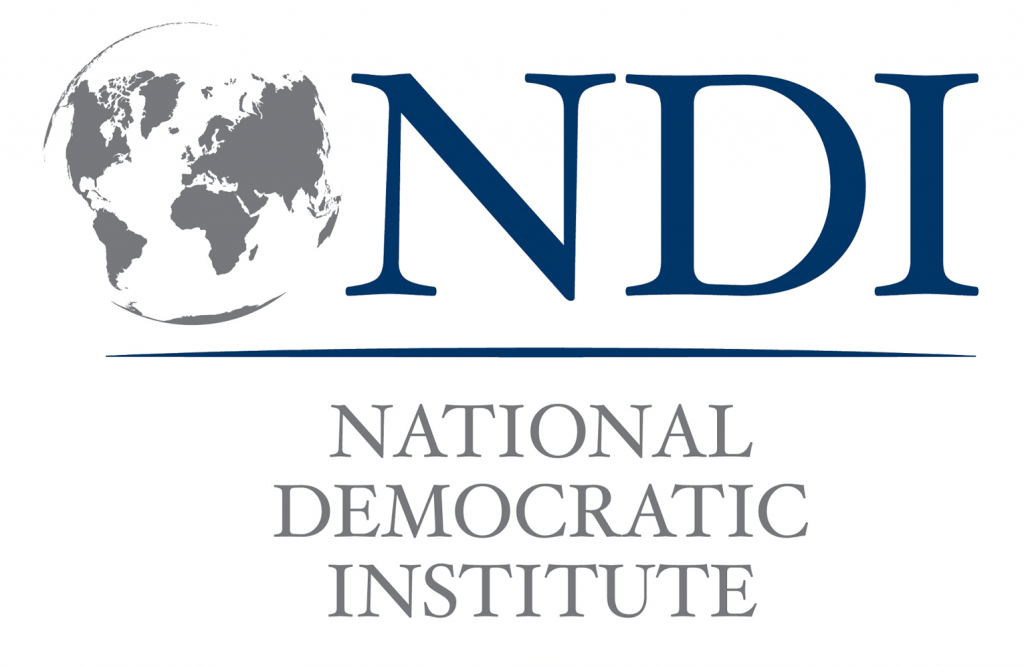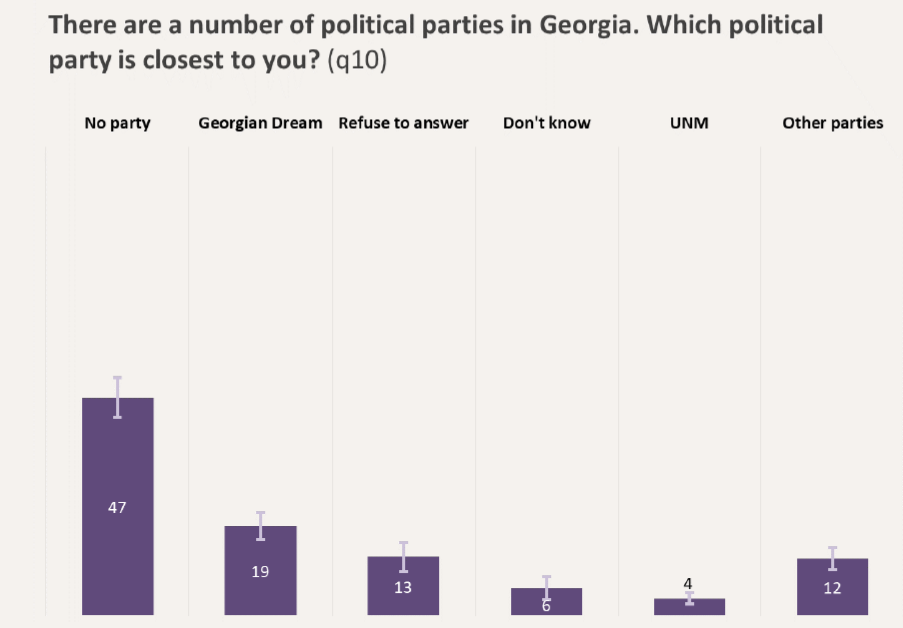
A poll commissioned by the US National Democratic Institute has once again shown the dire, and one might say catastrophic, situation faced by most political parties in Georgia a year before benchmark general elections.
According to the release published by NDI on Monday, if parliamentary elections were to be held now, presumably only the ruling party, Georgian Dream, and opposition United National Movement would cross the 5 percent threshold, with the former easily obtaining majority in the future parliament.
The support of other parties is so minuscule that the authors of the study included them in a single category, “other parties”.
It should be noted that again, as in all other surveys, the number of respondents in the polls carried out by the Caucasus Research Resources Centers who answer to the question “which political party is closest to you” with responses “no party” or “don’t know” is very high, 47% and 13%, respectively.

Among the named parties, Georgian Dream is on the first place with 19%, and UNM is on the second place with 4%. (Due to the fact that the data are given without allocation, these results will be much higher in the elections).
As for the rest of the parties, including a couple of far-right and openly pro-Russian groups, their total rating is 12%, which means that they have no chance of crossing the threshold at all, or the probability of this is too small.
Obviously, such a reality invites the unification. However, this is hindered by new regulations entering into force for the upcoming elections, which prohibit electoral blocs. That means parties must formally unite, yet this, in turn, has so far been prevented by the ambitions of political leaders and personal conflicts between them.
For example, the rapprochement of the two more or less large pro-Western opposition parties, Lelo and “For Georgia”, is hampered by the personal disagreement between their leaders, entrepreneur Mamuka Khazaradze, and ex-prime minister Giorgi Gakharia, which is dating back to the latter’s tenure at PM office.
Other studies carried out in recent months have given different results. For example, according to a survey published by Edison Research in November four parties, GD (33% by allocation), UNM (25%), “For Georgia” (10%), and the Labor Party (6%) could cross electoral threshold.
Before that, according to research published in September, conducted by the Institute of Social Studies and Analysis, without allocation, Georgian Dream had 25.2%, UNM got 6.4%, Girchi – More Freedom got 1.2%, and Lelo had 1.2%. The ratings of the other parties were below 1%.
General elections in Georgia are scheduled for the fall of 2024 and will be held entirely by the proportional system.

